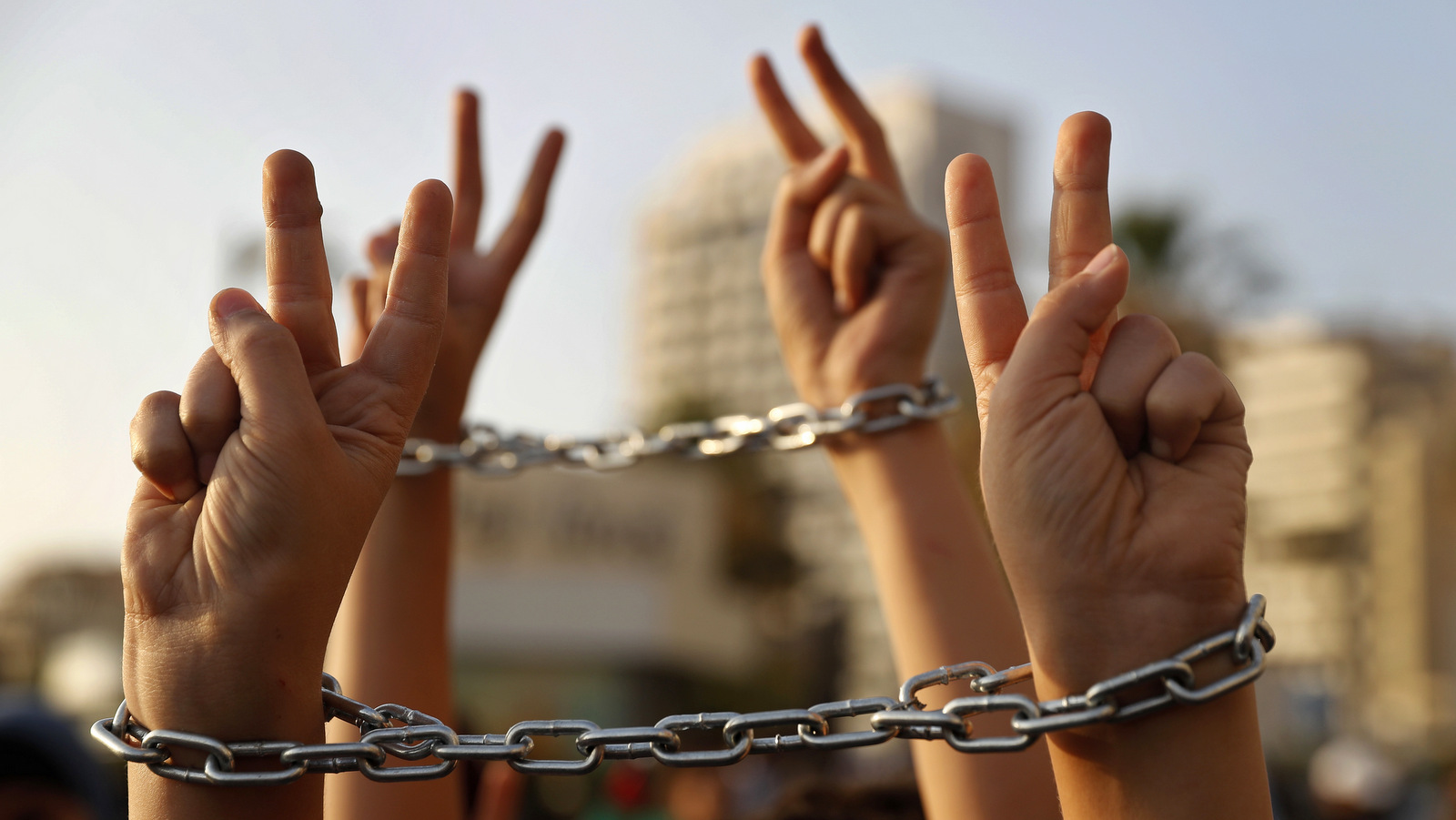
Palestinian boys raise up their hands with chains, during a protest to show their solidarity with hunger striking Palestinian prisoners in Israeli jails in Beirut, Lebanon, May 4, 2017. (AP/Hussein Malla)
Hundreds of Palestinian prisoners ended a 40-day hunger strike today initially launched over conditions in Israeli jails, the Israel Prison Service and a Palestinian official said.
About 1,100 inmates had initially taken part in one of the largest such hunger strikes, which began on 17 April. It raised tensions between Israel and the Palestinians, with protests in support of the strikers spilling over into clashes in the West Bank and along the Israel-Gaza border.
More than 800 inmates, who had stuck with the hunger strike until today, ended it after talks held with the International Committee of the Red Cross (ICRC) and the Palestinian Authority (PA) to change some of the prisoners’ conditions, a Prison Service Statement said.
On Wednesday, the UN High Commissioner for Human Rights Zeid Ra’ad Al-Hussein urged Israel to improve conditions.
Neither the Prison Service nor the Palestinian Authority divulged the full details of the agreement. However, the Prison Service did say that a second monthly family visit would be reinstated after it had been cut in the past.
Qadoura Fares, head of the Palestinian Prisoners’ Club, which works on behalf of inmates, said some points of the agreement would be discussed further.
“Issues that had been agreed upon were improving visits and prison conditions,” Fares told Reuters.
The strike was called by Marwan Barghouti, the most high-profile Palestinian jailed in Israel, to protest against solitary confinement and detention without trial, which has been applied to thousands of prisoners since the 1980s. Israel says that measure is necessary to prevent attacks and protect security sources.
Barghouti, a leader in Palestinian President Mahmoud Abbas’s Fatah movement, was convicted of murder over the killing of Israelis during the Second Intifada and sentenced in 2004 to five life terms. Surveys show many Palestinians want him to be their next president.
Israeli Public Security Minister Gilad Erdan has said Barghouti started the strike in order to garner political support.
The Prison Service said that most of the inmates on strike were aligned with Fatah, though it appears that the strike was a non-partisan effort. Eighteen were being treated in hospital.
Hunger strikes are not uncommon among the 6,500 Palestinians held in Israeli jails, many of whom were convicted of attacks or planning attacks against Israelis.
 This work by Middle East Monitor is licensed under a Creative Commons Attribution-NonCommercial-ShareAlike 3.0 International License.
This work by Middle East Monitor is licensed under a Creative Commons Attribution-NonCommercial-ShareAlike 3.0 International License.
Stories published in our Hot Topics section are chosen based on the interest of our readers. They are republished from a number of sources, and are not produced by MintPress News. The views expressed in these articles are the author’s own and do not necessarily reflect Mint Press News editorial policy.
Source Article from http://www.mintpressnews.com/palestinian-inmates-israeli-jails-end-hunger-strike/228255/
Related posts:
Views: 0
 RSS Feed
RSS Feed

















 May 28th, 2017
May 28th, 2017  Awake Goy
Awake Goy 





 Posted in
Posted in  Tags:
Tags: 
















